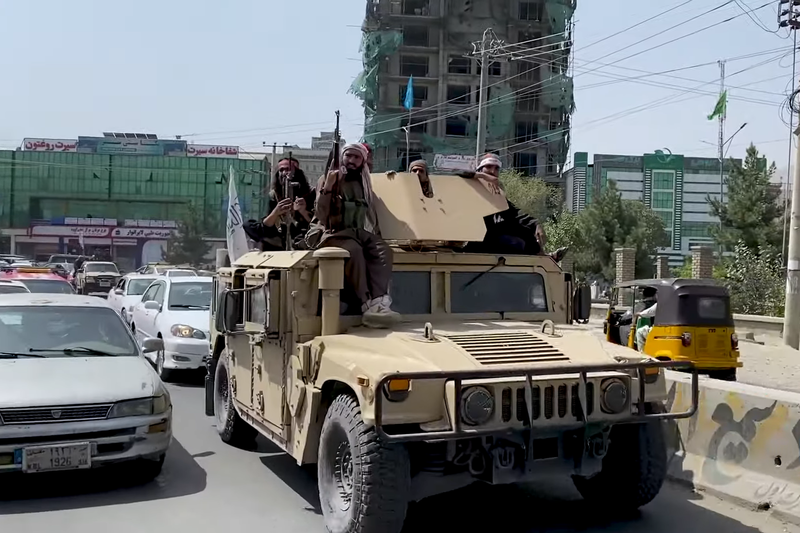The (Un)reliable US?
By Jonathan Joseph Chiarella
As disagreements continue over the relocation of the Gwangju military air base and the construction of new facilities, we can be certain of this: In Korea, the US will not “abandon” its position.
Eradicate Terrorism or Bust! (Until Something Else Comes Along)
Three decades of history point to the US being in East Asia for the long haul. The geopolitical factors that precipitated a South Korean panic over abandonment no longer apply. The gravity of the world is no longer concentrated in the trans-Atlantic, nor does the USSR stand as the US’s greatest threat. (Russia may be the most flagrant violator of the liberal rules-based order, but the US always keeps an eye on its more “personal” rival, China.)
Even the War on Terror in Central and Western Asia did not upend the US’s grand strategy. During the so-called “surge” in Afghanistan in 2009, the total number of US soldiers in Iraq and Afghanistan fell as deployments to South Korea and Japan increased. As The Hankyoreh reported in 2013, the US actually exceeded official maxima on troop deployment with “creative accounting.” (It did this by rotating its soldiers between bases in the two countries more quickly.) The allure of Afghanistan or Syria was rather minimal, which foreshadowed future US policy.
Two recent cases of “abandonment,” where the powerful US links up with a partner and then leaves its former ally to fight the battle alone, are with the Kurds in the Levant and with the non-Taliban in Afghanistan. These episodes engender fears over US involvement.
Imagine this worst-case scenario: The US paints a target on the ROK’s back, clumsily sparks a war in East Asia, and quits the region. The US would then leave everyone to their fates. We saw how that last part worked out in Afghanistan for women and collaborators with the US. The US packed up and left in 2021. The resurgent Taliban did not turn the other cheek.

The Twenty-First Century Is Not the Twentieth
This nightmare, however, will not come to pass because of East Asia’s strategic value. Because of the economic growth and demographic size of East Asia in this century, the region is impossible to ignore. With the PRC and the US in competition, the importance of East Asia is impossible to overstate.
The implication for the Jeolla region is thus. Rather than worry about making accommodations for the US and be left holding the bag when the US drops out, it is more likely that the US will use any facilities it can for as long as possible. And I predict that the US will protest loudly if the Gwangju military base relocation is of less capacity. The National Assembly writing a law is one thing. Implementing that act is another.
All of this will stay true even as the US’s glory days fade into the past. The US will continue to be a powerful presence in international affairs. Additionally, if the US has to focus its hard power in any single place, then it will be East Asia. (Two oceans and two much weaker neighbors have shown that the US can be secure with only a small army at home.) As a positive for US allies in the Pacific, however, the US is not going to draw the wrath of hostile countries while being too weak and understaffed to deal with the consequences.
Russia’s aggression in Ukraine is alarming, yes, and it has breathed new life into the US-dependent NATO, but NATO has not expanded or engaged in combat yet, and as long as fighting drags on, Ukraine is ineligible for NATO membership. No one can join NATO while in the middle of a war.
Additionally, Ukrainian territory seems to be a hill that few outside of Ukraine will die on – or be inconvenienced by. “Ukraine fatigue” has already gripped most conservative voters in Poland and the USA only a year and a half out from Russia’s full-scale invasion. Even if things continue to heat up in Europe, the only thing to make the US prioritize Europe over Asia is the US and Russia engaging in direct combat. This is unlikely to happen.
The Choice
For Asia, the uncertainty surrounding the US no longer surrounds the resoluteness of its commitment. Anyone can see the strategy to encircle China. (Even if either power harbors non-hostile intentions, their maps show how both the PRC and the US are drawing maximalist lines.) The uncertainty now concerns if a US presence helps or hurts regional peace and Korean unification. There are strong arguments for both sides, and the issue is more abstract than “will the US withdraw all troops in the next five years?” Because the US will faithfully and indefinitely seize upon opportunities in Korea, residents have to wisely plan the extent of partnerships.
The Author
Jonathan J. Chiarella grew up in New York. He holds a B.A. in History (Rochester) as well as two M.A.s (Chonnam, Florida) and a Ph.D. in Politics (Florida). You can spot him riding the river trails or read his analysis of current affairs related to Honam or international relations.




